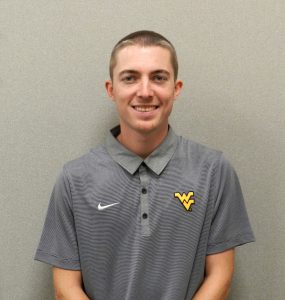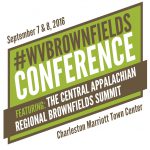MORGANTOWN, W.Va. – Researchers at West Virginia University studied drilling wastes produced at two research wells near Morgantown and found they are well below federal guidelines for radioactive or hazardous waste.
Paul Ziemkiewicz, director of the West Virginia Water Research Institute at WVU, will present these and other findings from the Marcellus Shale Energy and Environmental Laboratory, or MSEEL, today at the Appalachian Basin Technology Workshop in Canonsburg, Pennsylvania.
Dr. Ziemkiewicz and his research team are studying the solid and liquid drilling wastes that are generated during shale gas development. These include drill cuttings, muds and produced water.
Drilling a horizontal well in the Marcellus Shale produces about 500 tons of rock fragments, known as cuttings. WVU researchers have been studying the radioactivity and toxicity of the drill cuttings, which are trucked on public roads to county landfills.
MSEEL scientists found that using the “green” drilling mud BioBase 365 at the well site resulted in all 12 cuttings samples passing the U.S. Environmental Protection Agency’s test for leaching toxicity, allowing them to be classified as non-hazardous for non-radiological parameters like benzene and arsenic.
They determined that the drilling mud exerted a strong influence over the environmental risks associated with handling and disposing of drill cuttings.
Ziemkiewicz discussed the findings in the context of the West Virginia, Pennsylvania and federal standards for transportation and landfilling. For example, the U.S. Department of Transportation classifies solid wastes exceeding 2,000 pico curies per gram (pCi/g) as low level radioactive waste requiring special permitting and handling.
“Radium is the dominant radioactive element in drilling wastes. In our study, the highest radium readings were below 10.8 pCi/g in the horizontal legs of the two production wells at the MSEEL site. Most were below 5 pCi/g,” says Ziemkiewicz. “The highest radium level in produced water found so far was 17 pCi/g. All of these are well below the U.S. Department of Transportation standard.”
Placing these materials in landfills, however, requires compliance with state landfilling regulations, which are based on exposure levels.
Ziemkiewicz’s team has also sampled the waste streams at the two production wells to identify changes in organic, inorganic and radiochemical composition over time. Among these findings, Ziemkiewicz noted that almost all contaminants increase through the production phase of an unconventional gas well while the volume of water drops rapidly. Toxic concentrations far exceed permissible levels for drinking water or discharge to streams. Most of this water is used for subsequent hydraulic fracturing operations. The remainder is disposed of under the states’ underground injection well programs.
When the production wells were completed in early December 2015, about 50 gallons of produced water came out of the wells each minute. Within a week that dropped to four gallons per minute, and it is currently one third of a gallon per minute or 460 gallons per day.
The MSEEL project is led by West Virginia University and the Ohio State University in partnership with Northeast Natural Energy, Schlumberger and the National Energy Technology Laboratory of the United States Department of Energy. It is the first-ever long-term, comprehensive field study of shale gas resources in which scientists will study the process from beginning-to-end.
The project site consists of an intensively instrumented science well and two shale gas production wells where researchers from WVU, Ohio State, the U.S. Geological Survey, USDOE and several other universities are studying what happens during and after hydraulic fracturing. The five-year MSEEL project includes engineers, ecologists, public health professionals, social scientists and more. The comprehensive studies include monitoring of baseline air, noise, light and water, as well as collecting of geological, environmental and other data.
“This has not been done in a publicly funded study before,” said Ziemkiewicz.
-WVU-
CONTACT: Paul Ziemkiewicz; West Virginia Water Research Institute
304.293.6958; [email protected]

 MORGANTOWN, W.Va. – The West Virginia Water Research Institute (WVWRI) is pleased to announce that Aaron Beam has joined its team as its new Environmental Technician. The WVWRI is a program of the National Research Center for Coal and Energy at West Virginia University. Beam, a West Virginia native, earned his undergraduate degrees in Mining Engineering and Geology from West Virginia University.
MORGANTOWN, W.Va. – The West Virginia Water Research Institute (WVWRI) is pleased to announce that Aaron Beam has joined its team as its new Environmental Technician. The WVWRI is a program of the National Research Center for Coal and Energy at West Virginia University. Beam, a West Virginia native, earned his undergraduate degrees in Mining Engineering and Geology from West Virginia University.